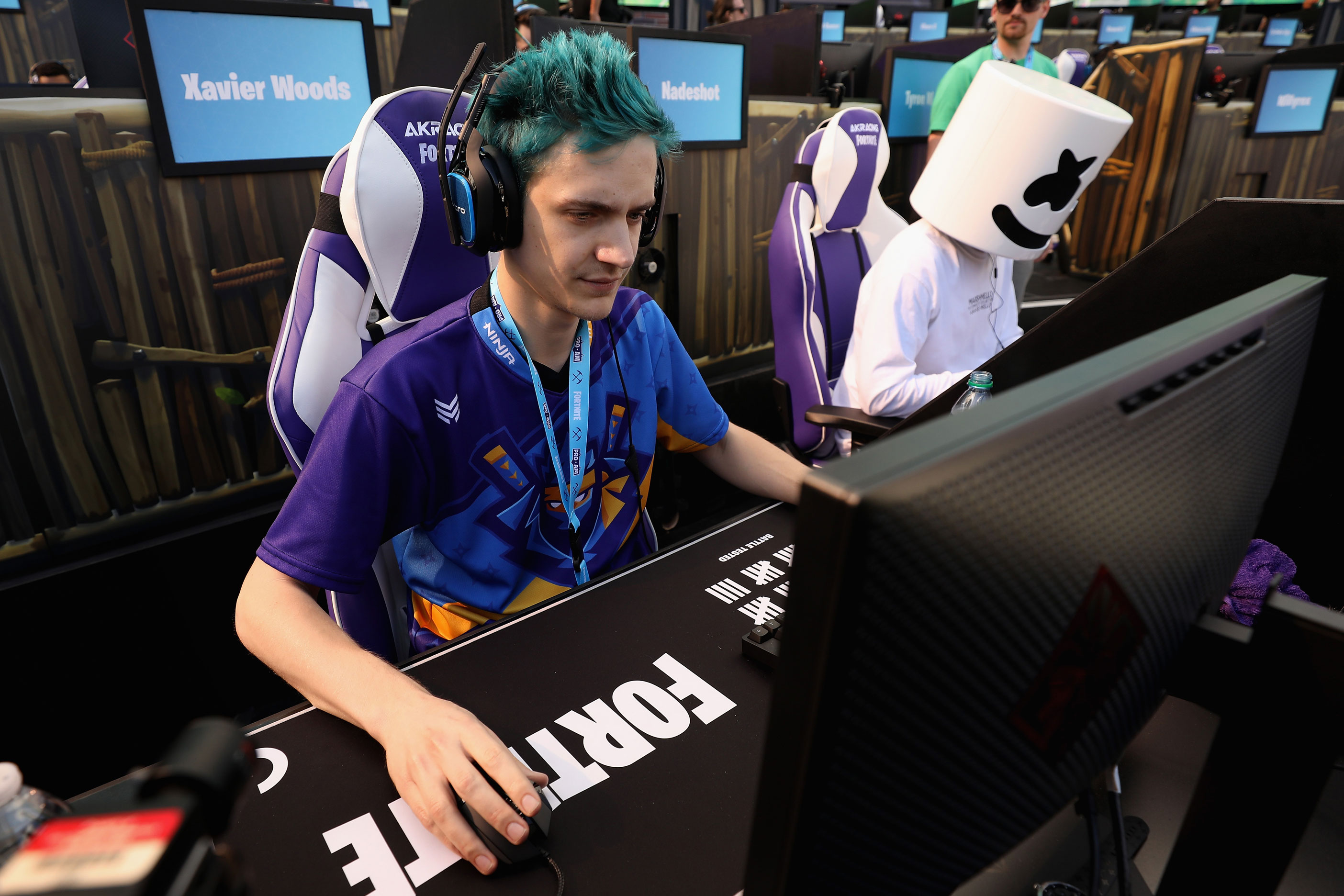Epic Games had as good a year in 2018 as any company in tech. Fortnite became the world’s most popular game, growing the company’s valuation to $15 billion, but it has helped the company pile up cash, too. Epic grossed a $3 billion profit for this year fueled by the continued success of Fortnite, a source with knowledge of the business told TechCrunch.
Epic did not respond to a request for comment.
Fortnite, which is free to play but makes money selling digital items, has popularized the battle royale category — think Lord of the Flies meets Hunger Games — almost single-handedly, and it has been the standout title for the U.S.-based game publisher.
Founded way back in 1991, Epic hasn’t given revenue figures for its smash hit — which has 125 million players — but this new profit milestone, combined with other pieces of data, gives an idea of the success the company is seeing as a result of a prescient change in strategy made six years ago.
This past September, Epic commanded a valuation of nearly $15 billion, according to The Wall Street Journal, as marquee investors like KKR, Kleiner Perkins and Lightspeed piled on in a $1.25 billion round to grab a slice of the red-hot development firm. However, the investment cards haven’t always been stacked in Epic’s favor.
China’s Tencent, the maker of blockbuster chat app WeChat and a prolific games firm in its own right, became the first outside investor in Epic’s business back in 2012 when it injected $330 million in exchange for a 40 percent stake in the business.
Back then, Epic was best known for Unreal Engine, the third-party development platform that it still operates today, and top-selling titles like Gears of War.
Why would a proven company give up such a huge slice of its business? Executives believed that Epic, as it was, was living on borrowed time. They sensed a change in the way games were headed based on diminishing returns and growing budgets for console games, the increase of “live” games like League of Legends and the emerging role of smartphones.
Speaking to Polygon about the Tencent deal, Epic CEO Tim Sweeney explained that the investment money from Tencent allowed the company to go down the route of freemium games rather than big box titles. That’s a strategy Sweeney called “Epic 4.0.”
“We realized that the business really needed to change its approach quite significantly. We were seeing some of the best games in the industry being built and operated as live games over time rather than big retail releases. We recognized that the ideal role for Epic in the industry is to drive that, and so we began the transition of being a fairly narrow console developer focused on Xbox to being a multi-platform game developer and self publisher, and indie on a larger scale,” he explained.
Tencent, Sweeney added, has provided “an enormous amount of useful advice,” while the capital enabled Epic to “make this huge leap without the immediate fear of money.”

Epic never had a problem making money — Sweeney told Polygon the first Gear of Wars release grossed $100 million on a $12 million development budget. But with Fortnite, the company has redefined modern gaming, both by making true cross-platform experiences possible and by pulling in vast amounts of money.
As a private company, Epic keeps its financials closely guarded. But digging beyond the $3 billion figure — which, to be clear, is annual profit not revenue — there are clues as to just how big a money-spinner Fortnite is. Certainly, there’s room to wonder whether analyst predictions this summer that Fortnite would gross $2 billion this year were too conservative.
The most recent data comes from November when Sensor Tower estimates that iOS users alone were spending $1.23 million per day. That helped the game bank $37 million in the month and take its total earnings within Apple’s iOS platform to more than $385 million.
But, as mentioned, Fortnite is a cross-platform title that supports PlayStation, Xbox, Switch, PC, Mac, Android and iOS. Aggregating revenue across those platforms isn’t easy, and the only real estimate comes from earlier this year when Super Data Research concluded that the game made $318 million in May across all platforms.
That is, of course, when Fortnite was fresh on iOS, non-existent on Android and with fewer overall players.
We can deduce from Sensor Tower’s November estimate that iOS pulled in $385 million over eight months — between April and November — which is around $48 million per month on average. Android is harder to calculate since Epic skipped Google’s Play Store by distributing its own launcher. While it quickly picked up 15 million Android users within the first month, tracking that spending off-platform is a huge challenge. Some estimates predicted that Google would miss out on around $50 million in lost earnings this year because in-app purchases on Android would not cross its services.
There are a few factors to add further uncertainty.
Fortnite spending tends to spike around the release of new seasons — updated versions of the game — since users are encouraged to buy specific packages at the start. The latest, Season 7, dropped early this month with a range of tweaks for the Christmas period. Given the increased velocity at which Fortnite is picking up players and the appeal of the festive period, this could have been its biggest revenue generator to date, but there’s not yet any indicator of how it performed.
More broadly, Fortnite has undoubtedly lost out on revenue in China, which froze new game licenses nine months ago, thereby preventing any publishers from monetizing new titles over that period.
Tencent, which publishes Fortnite in China, did release the game in the country but it hasn’t been able to draw revenue from it yet. The Chinese government announced last week that it is close to approving its first batch of new titles, but it isn’t clear which games are included and when the process will be done.
Already, the effects have been felt.
Games are forecast to generate nearly $40 billion in revenue in China this year, according to market researcher Newzoo. However, the industry saw its slowest growth over the last 10 years as it grew 5.4 percent year-over-year during the first half of 2018, according to a report by Beijing-based research firm GPC and China’s official gaming association CNG.
Fortnite and PUBG — another battle royale title backed by Tencent — have perhaps suffered the most since they are universally popular worldwide but unable to monetize in China. It seems almost certain that those two titles will receive a major marketing push if, as and when they receive the license and, if Epic can keep the game competitive as Sweeney believed it could back in 2012, then it could go on and make even more money in 2019.

But Epic isn’t relying solely on Fortnite.
A more low-key but significant launch this month was the opening of the Epic Games store, which is aimed squarely at Steam, the leader in digital game sales.
While Fortnite is its most prolific release, Epic also makes money from other games, Unreal Engine and a recently launched online game store that rivals Steam. Epic’s big differentiator for the store is that it gives developers 88 percent of their revenue, as opposed to Valve — the firm behind Steam — which keeps 30 percent, although it has added varying rates for more successful titles. Customers are promised a free title every two weeks.
Either way, Epic is betting that it can do a lot more than Fortnite, which could mean that its profit margin will be even higher come this time next year.































Comment